Retour
William Caxton
| Nom Intervenant | William Caxton |
| Date de naissance Post Quem | 0 |
| Date de naissance Ante Quem | 0 |
| Date de mort Post Quem | 0 |
| Date de mort Ante Quem | 0 |
| Observations |
5
associations
> Possesseur
:
BOSTON, Public Library, MS f Med. 092
note manuscrite. Il donne le ms en 1471 à William Sonnyng
9 référence(s)
>
Renaud Adam, Les livres imprimés en français avant 1500 dans les Pays-Bas méridionaux : réflexions sur leur mise en page, L'écrit et le manuscrit à la fin du Moyen Age, Texte Codex et contexte, 1, Turnhout, Brepols, 2006 : p. 17-33
>
N-F BLAKE, William Caxton : a bibliographical guide, New York, Garland, 1985
>
Stefania Cerrito, Entre Ovide et Ovide moralisé: la variance des traductions des Métamorphoses au Moyen Âge et à la Renaissance, Le texte médiéval. De la variante à la recréation, 2012 : p. 159-172
>
Myriam Cheyns-Conde, L'épopée troyenne dans la librairie ducale bourguignonne au XVe siècle, Les sources littéraires et leurs publics dans l'espace bourguignon (XIVe-XVIe s.). Rencontres de Middelbourg/Bergen-op-Zoom (27-30 septembre 1990), Publication du Centre européen d'études bourguignonnes (XIVe-XVIe s.), 31, Neuchâtel, 1991 : p. 37 - 65
>
MIGUEL FUSTER MARQUEZ, William Caxton y la traduccion inglesa del Recueil des histoires de Troyes, thèse de doctorat, Valencia, 1988
>
WERNER HULLEN, William Caxton's Dialogues in French and English as a source of information about social reality, Anglistentag 1995 Greifswald: Proceedings of the Conference of the German Association of University Teachers of English, XVII, Tübingen, Niemeyer, 1996 : p. 243 - 244
>
Lotte Hellinga, William Caxton, Colard Mansion, and the printer in Type 1 (Résumé français : William Caxton et ses associés en Flandre), Bulletin du Bibliophile, 2011 : p. 86-114
>
David A. Mycoff, A Critical Edition of the Legend of Mary Magdalena from Caxton's Golden Legende of 1483, 1985
>
Sarah Peverley, Caxton, William, Encyclopedia of the Medieval Chronicle, Leiden, Brill, 2010 : p. 262-263




